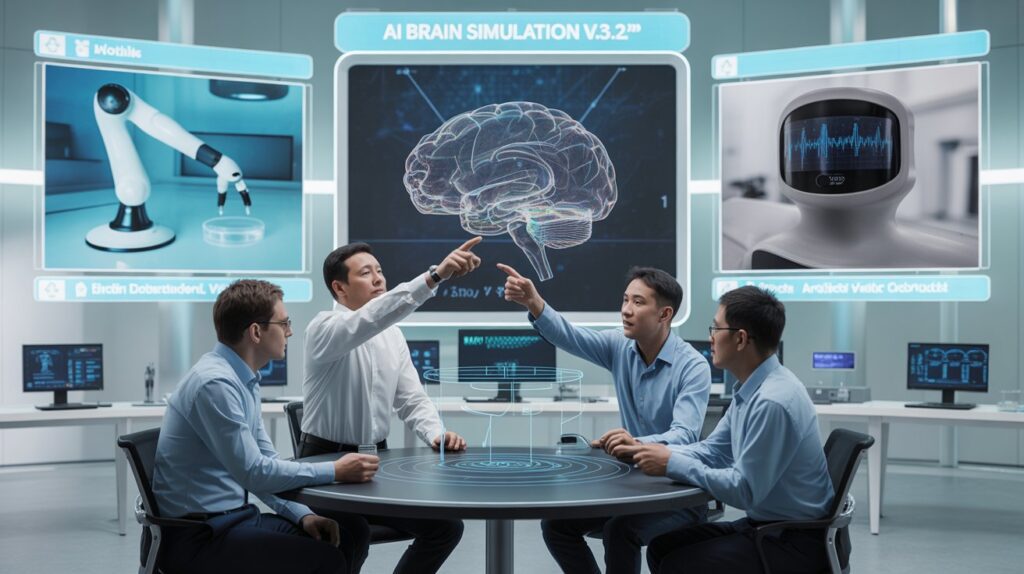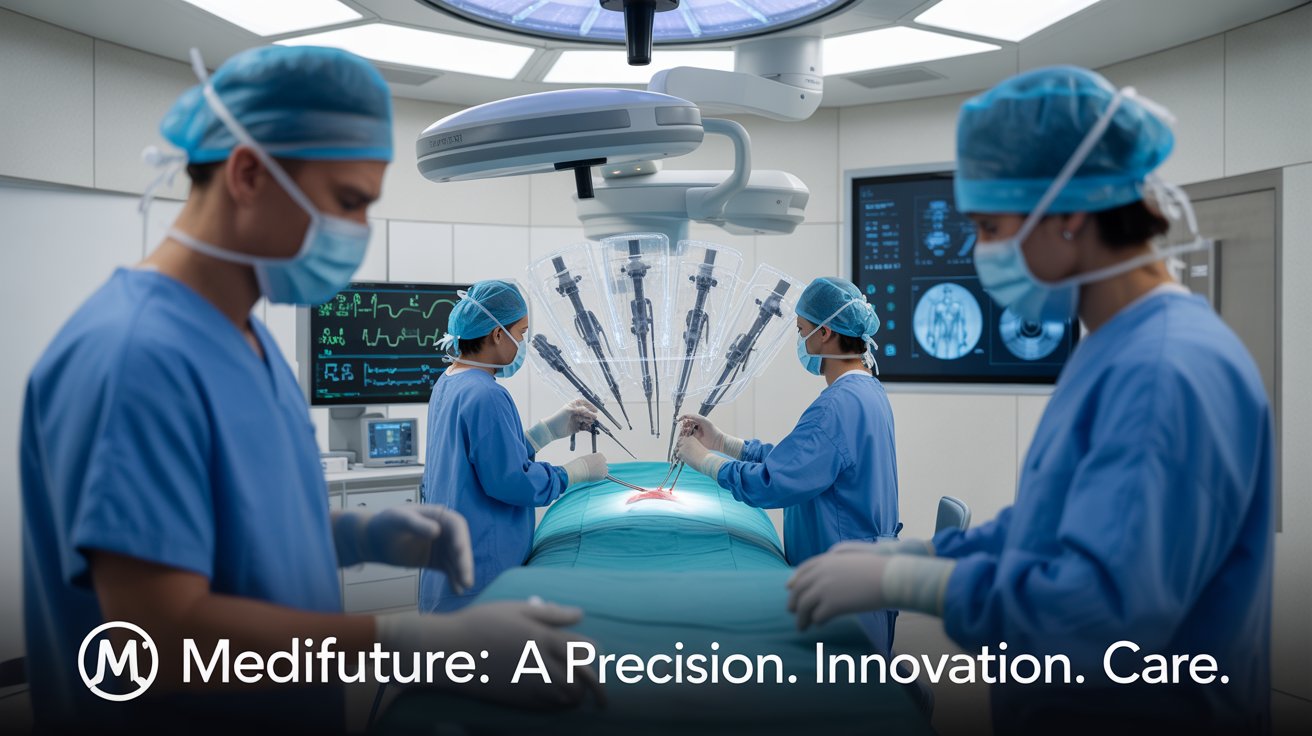Artificial Intelligence (AI) is no longer just a futuristic concept in medicine—it’s a present-day reality that’s rapidly transforming the U.S. healthcare system. From early disease detection to personalized treatment plans and administrative automation, AI technologies are delivering real-world value to patients, doctors, and healthcare providers alike.
But what exactly has changed in the last few years? And how is AI affecting actual patient outcomes?
In this article, we’ll break down the most significant developments in AI healthcare technologies and examine how these innovations are improving lives across the country.
The Rise of AI in the Healthcare Industry
Over the last decade, investment in AI for healthcare has surged. According to industry reports, AI in healthcare is projected to exceed $100 billion by 2030, driven by the demand for improved diagnostics, better patient care, and reduced costs.
U.S.-based hospitals, research institutions, and digital health startups are increasingly leveraging AI tools to:
- Analyze vast amounts of medical data
- Predict disease progression
- Optimize resource allocation
- Enhance patient engagement through smart tools
What makes AI so promising in healthcare is its ability to analyze large datasets quickly and identify patterns that humans might miss—even highly experienced clinicians.
Key AI Developments in Healthcare
Let’s explore the most impactful areas where AI is making a difference today:
1. Medical Imaging and Diagnostics
One of AI’s most proven applications is in medical imaging. Tools like Google Health’s AI algorithm and Zebra Medical Vision have shown remarkable accuracy in detecting conditions such as:
- Breast cancer from mammograms
- Lung disease from chest X-rays
- Brain aneurysms from CT scans
The Mayo Clinic and Stanford Health Care have adopted AI tools that can analyze scans faster than human radiologists, often flagging high-risk cases in real-time. This leads to faster diagnoses, quicker treatment plans, and in many cases, life-saving early detection.
2. Predictive Analytics for Chronic Diseases
Chronic conditions like diabetes, heart disease, and kidney failure are leading causes of death in the U.S. AI-powered platforms now analyze electronic health records (EHRs) to predict which patients are at risk.
Companies like Tempus and Health Catalyst use machine learning models that process historical and real-time data to:
- Monitor patient vitals remotely
- Predict hospital readmission risks
- Alert providers of potential health deteriorations before they occur
These systems are helping doctors shift from reactive care to proactive, preventative medicine.
3. AI-Assisted Surgery and Robotics

Surgical robots guided by AI are gaining popularity in American hospitals. The da Vinci Surgical System, for example, allows surgeons to perform minimally invasive procedures with extreme precision.
Newer AI-driven platforms are even capable of:
- Suggesting optimal incision points
- Monitoring vital signs during surgery
- Providing real-time risk alerts
AI-assisted surgeries have been linked to shorter recovery times, fewer complications, and better overall outcomes for patients.
4. Natural Language Processing in Clinical Documentation
Doctors spend a significant amount of time on administrative work—often more than on patient interaction. AI is now reducing this burden through natural language processing (NLP).
Tools like Nuance’s Dragon Medical One can transcribe conversations between doctors and patients in real-time, automatically updating EHRs without manual input.
This technology frees up time for doctors to focus more on patient care and reduces the risk of documentation errors, ultimately improving treatment quality.
Impact on Patient Outcomes
All these innovations raise one crucial question: Is AI really making healthcare better for patients?
The answer is increasingly yes. Here’s how:
Faster Diagnoses and Early Detection
AI can detect diseases—such as cancers or strokes—much earlier than traditional methods. Earlier treatment often leads to better survival rates and fewer long-term complications.
Personalized Treatment Plans
AI systems can analyze genetics, lifestyle data, and treatment responses to tailor medications or therapies specifically to the individual. This personalized approach is especially valuable in oncology and rare diseases.
Fewer Hospital Readmissions
AI-enabled monitoring tools help patients manage conditions from home. By flagging early warning signs, these tools reduce emergency visits and readmissions, which benefits both patients and healthcare systems.
Greater Access to Care
Telehealth platforms powered by AI chatbots and virtual nurses are expanding access in rural and underserved areas. Patients can receive advice, schedule appointments, or get medication reminders without visiting a clinic.
Ethical Considerations and Challenges
Despite its benefits, AI in healthcare is not without concerns. Issues include:
- Data privacy: Medical data is sensitive. Ensuring HIPAA compliance and strong encryption is essential.
- Algorithm bias: If trained on non-diverse data, AI models may make biased decisions that can affect marginalized communities.
- Lack of transparency: Patients and doctors alike need to understand how AI makes its recommendations.
Healthcare providers and tech companies must prioritize ethics, inclusivity, and transparency as AI becomes more integrated into patient care.
What’s Next for AI in U.S. Healthcare?
The next phase of AI adoption in healthcare looks even more promising. We’re already seeing:
- AI-based mental health chatbots providing early intervention for depression and anxiety.
- Wearable devices with AI sensors for continuous glucose monitoring or cardiac event detection.
- AI in drug discovery, speeding up clinical trials and identifying candidates faster than ever.
The FDA is actively working on regulatory frameworks to ensure AI tools used in healthcare meet rigorous safety and efficacy standards.
As these technologies continue to mature, the U.S. healthcare system could shift to a model that’s faster, more accurate, and more personalized than ever before.


1 thought on “AI in Healthcare: Recent Developments and Patient Outcomes”